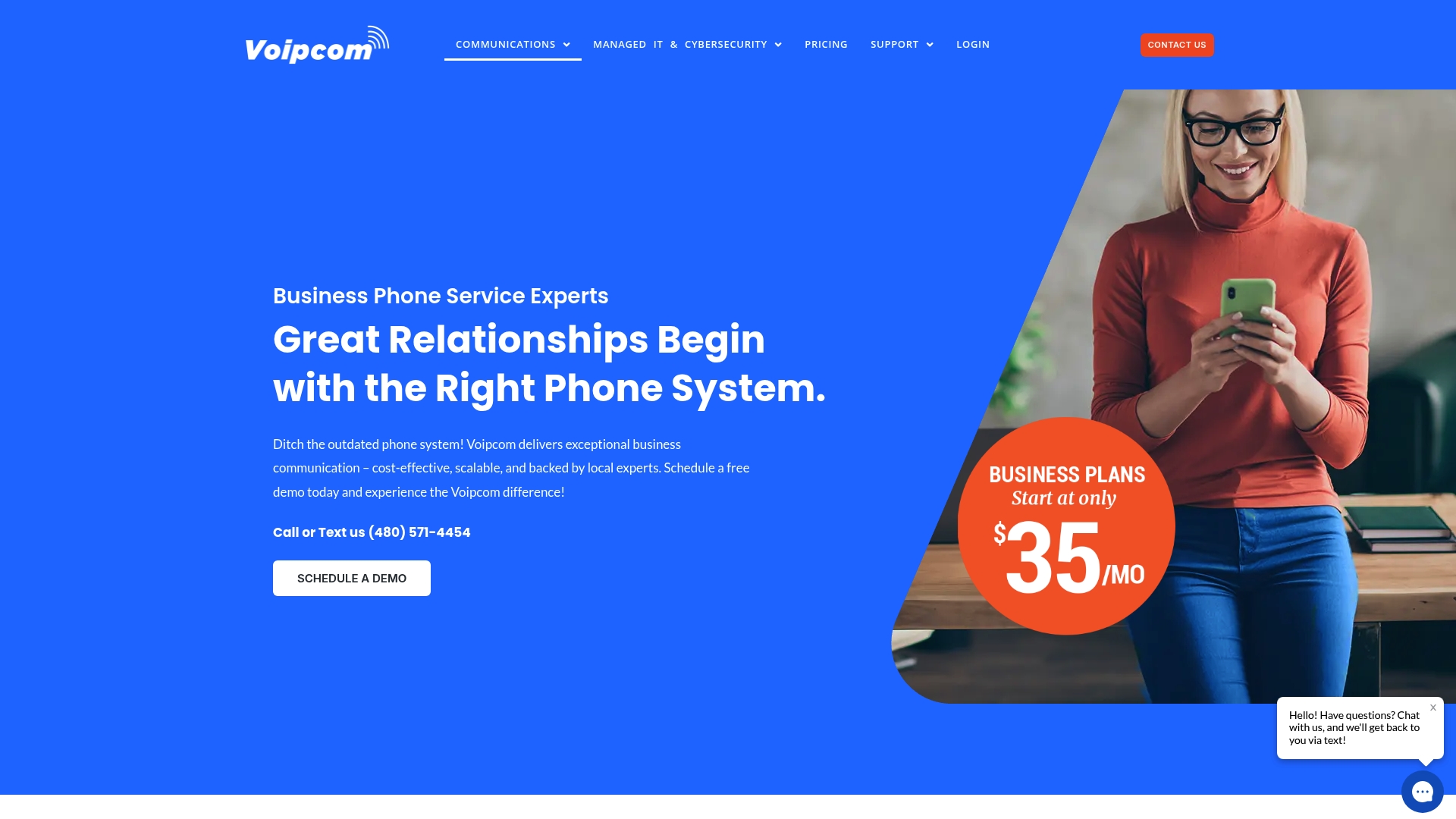Did you know that over 90 percent of SMS messages are read within the first three minutes of delivery? Businesses are turning to SMS for direct, immediate communication because people rarely ignore texts. In a world where inboxes overflow and people crave quick info on their phones, SMS stands out for personal outreach, reminders, and alerts. Understanding the different ways organizations use SMS sheds light on why it remains one of the most effective tools for reaching customers fast.
Table of Contents
- Defining SMS for Business Communications
- Types of Business SMS and Common Uses
- How Business SMS Platforms Operate
- Compliance and Legal Requirements for SMS
- Benefits, Risks, and Cost Considerations
Key Takeaways
| Point | Details |
|---|---|
| Effective Communication Tool | SMS provides businesses with high open rates and instant delivery, making it ideal for time-sensitive messages. |
| Diverse Messaging Types | Utilize P2P, A2P, and Short Codes for effective customer interactions across various applications. |
| Compliance Importance | Adherence to legal regulations like TCPA and GDPR is crucial to avoid significant penalties and ensure consumer trust. |
| Cost vs. Risks Analysis | While SMS is cost-effective, businesses must evaluate compliance costs and customer perception risks when implementing strategies. |
Defining SMS for Business Communications
Short Message Service (SMS) represents a powerful communication tool that enables businesses to send concise, direct text messages instantly to customers’ mobile devices. According to research from Business.com, SMS is widely used across various business functions including marketing promotions, appointment reminders, and customer support.
At its core, SMS provides businesses an immediate communication channel with remarkable advantages. The technology allows organizations to deliver time-sensitive information directly to recipients’ phones, bypassing email clutter and achieving significantly higher engagement rates. Research indicates SMS-based information systems offer an efficient alternative to traditional communication methods, leveraging the near-universal mobile device ownership.
Key characteristics of business SMS communications include:
- Instantaneous message delivery
- High open rates (often exceeding 90%)
- Cost-effective communication method
- Direct and personal customer interaction
- Compatibility with most mobile devices
By integrating SMS marketing services, businesses can transform how they connect with customers, providing timely updates, personalized notifications, and streamlined communication strategies that meet modern digital expectations.
Types of Business SMS and Common Uses
Businesses leverage multiple SMS messaging types to enhance communication strategies. According to research from Business.com, these types include Person-to-Person (P2P) for direct human interaction, Application-to-Person (A2P) for automated messaging, and Short Codes for high-volume campaign communications.
In professional services, SMS serves as a versatile communication tool with diverse applications. Business texting solutions enable organizations to streamline client interactions through strategic messaging approaches. Common use cases include:
Here is a comparison of the main types of business SMS and their common uses:
| SMS Type | Description | Common Uses |
|---|---|---|
| P2P (Person-to-Person) | Direct human interaction | Customer support Two-way conversations |
| A2P (Application-to-Person) | Automated business messages | Appointment reminders Promotions Alerts |
| Short Codes | 5-6 digit numbers for high-volume sends | Large-scale campaigns Contests Notifications |
- Marketing promotions and targeted campaigns
- Appointment and event reminders
- Customer support and service notifications
- Two-way conversational messaging
- Urgent alerts and time-sensitive updates
The power of SMS lies in its ability to deliver immediate, personal communications directly to customers’ mobile devices. By integrating SMS into their communication strategies, businesses can create more responsive, engaging, and efficient interaction channels that meet modern customer expectations for quick and convenient information exchange.
How Business SMS Platforms Operate
Business SMS platforms are sophisticated communication systems that seamlessly integrate with existing business technologies to enable efficient text messaging. According to research from Business.com, these platforms support multiple messaging types like Person-to-Person (P2P) and Application-to-Person (A2P), utilizing short codes and toll-free numbers for comprehensive communication strategies.
The core functionality of SMS platforms revolves around processing and routing messages with remarkable precision. Business messaging solutions enable organizations to automate communication workflows, providing features that transform how businesses interact with customers and team members. The technical infrastructure allows for:
- Automated message routing
- Real-time message tracking
- Scheduled message deployment
- Advanced analytics and reporting
- Integration with CRM and communication systems
Under the hood, SMS platforms function by parsing incoming messages, executing database queries, and formatting responses to ensure clear, immediate communication. They act as intelligent bridges between businesses and their communication networks, enabling rapid, reliable message transmission across diverse professional environments.
Compliance and Legal Requirements for SMS
Business SMS communications are governed by a complex landscape of legal regulations designed to protect consumer privacy and prevent unsolicited messaging. According to research from Statflo, businesses must navigate multiple legislative frameworks including the Telephone Consumer Protection Act (TCPA), CAN-SPAM Act, and international regulations like GDPR.
The stakes for non-compliance are significant. According to industry research, violations can result in substantial financial penalties, with the TCPA imposing fines ranging from $500 to $1,500 per unsolicited message.
Compliance guidelines require businesses to implement rigorous consent management processes:
- Obtain explicit prior consent before sending marketing messages
- Provide clear opt-out mechanisms in every communication
- Maintain detailed records of customer consent
- Respect international data protection regulations
- Implement secure data handling protocols
Successful SMS compliance demands a proactive approach. Businesses must develop comprehensive consent management systems, train staff on regulatory requirements, and continuously monitor changing legal landscapes to ensure their messaging strategies remain both effective and legally sound.
Benefits, Risks, and Cost Considerations
SMS communication presents a powerful yet nuanced strategy for businesses seeking efficient customer engagement. According to research from Business.com, the technology offers remarkable advantages, including exceptionally high open rates, immediate message delivery, and cost-effective communication channels that traditional marketing methods cannot match.
However, implementing SMS requires careful navigation of potential risks and strategic cost management. Business messaging solutions highlight the critical balance between opportunity and potential challenges. Key considerations include:
- High engagement and conversion rates
- Immediate customer communication
- Low per-message transmission costs
- Potential legal compliance expenses
- Risk of customer perception and privacy concerns
Cost structures for SMS platforms typically involve platform subscription fees, per-message rates, and potential infrastructure investments. Businesses must weigh these expenses against potential marketing returns, ensuring that their SMS strategy delivers measurable value while maintaining strict adherence to communication regulations and customer preferences.
Transform Your Business Communications with Voipcom’s SMS Solutions
If your business struggles with reaching customers quickly and effectively through cluttered channels, SMS for business provides the instant, direct communication you need. This article showed how important compliance, automation, and personalization are to maximize your SMS marketing and messaging efforts. Voipcom understands these challenges and offers tailored cloud-based SMS & MMS services designed to streamline your messaging, ensure legal compliance, and boost engagement with your clients.
Take control of your business messaging today with Voipcom’s Messaging Services. Experience fully managed solutions that integrate seamlessly with your existing phone systems while ensuring transparent pricing and local, reliable support. Get started now at voipcom.network and turn your SMS strategy into a powerful tool that drives real customer connections and business growth.
Frequently Asked Questions
What is SMS for business communications?
SMS for business communications refers to the use of Short Message Service (SMS) to send direct, concise text messages to customers’ mobile devices, enabling efficient communication for purposes like marketing, reminders, and customer support.
What are the main types of business SMS?
The main types of business SMS include Person-to-Person (P2P) for direct human interaction, Application-to-Person (A2P) for automated messages, and Short Codes for high-volume campaign communications.
What are the benefits of using SMS for business communications?
The benefits of using SMS for business include high engagement rates, immediate delivery of messages, cost-effectiveness, and the ability to provide direct and personal communication to customers.
How do businesses ensure compliance when using SMS communications?
Businesses can ensure compliance by obtaining explicit consent from customers before sending messages, providing clear opt-out options in every communication, maintaining records of consent, and adhering to data protection regulations.





